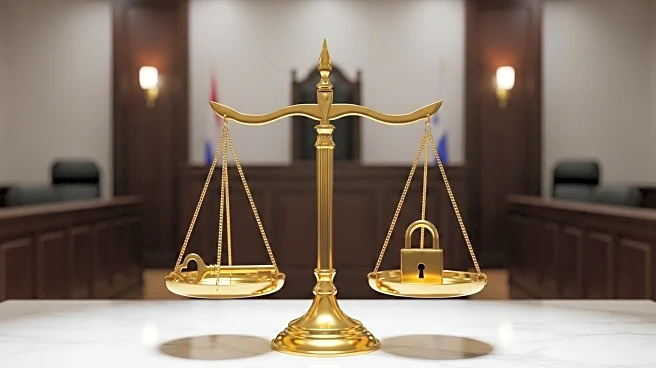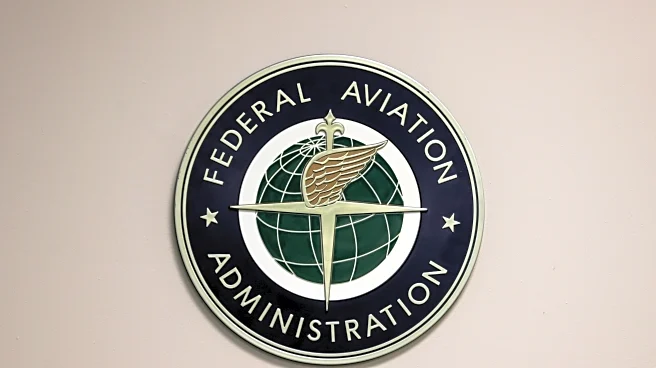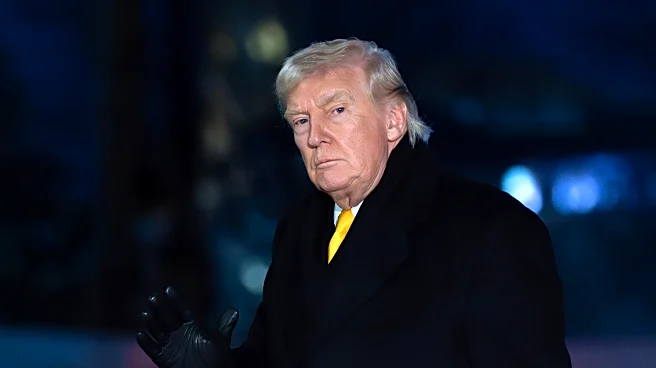What's Happening?
President Trump has signed an executive order allowing the U.S. to designate nations as state sponsors of wrongful detention. This move aims to deter countries from detaining Americans abroad by imposing penalties such as economic sanctions, visa restrictions, and travel limitations. Secretary of State Marco Rubio emphasized that no nation should want to be on this list, likening it to the state sponsors of terrorism designation. The order is designed to make it easier to penalize nations that detain Americans and to encourage the release of U.S. nationals. While the specific countries to be targeted have not been announced, senior administration officials mentioned China, Afghanistan, Iran, and Russia as potential candidates. The order also applies to non-state actors controlling significant territory.
Why It's Important?
This executive order represents a significant step in U.S. foreign policy, aiming to protect American citizens from being used as bargaining chips by foreign governments. The designation could lead to substantial diplomatic and economic consequences for countries that engage in wrongful detention practices. It underscores the Trump administration's commitment to bringing home Americans detained abroad, as evidenced by the recent successful negotiations for the release of several U.S. citizens. The order could impact international relations, particularly with countries that have historically detained Americans, and may influence how these nations interact with U.S. citizens in the future.
What's Next?
The implementation of this order will likely involve diplomatic negotiations and assessments by the State Department to determine which countries will be designated as sponsors of wrongful detention. The administration may face challenges in balancing diplomatic relations with the enforcement of penalties. Stakeholders, including advocacy groups and families of detained Americans, will be closely monitoring the administration's actions and responses from affected countries. The order's impact on international diplomacy and the potential for retaliatory measures by targeted nations will be key areas to watch.










